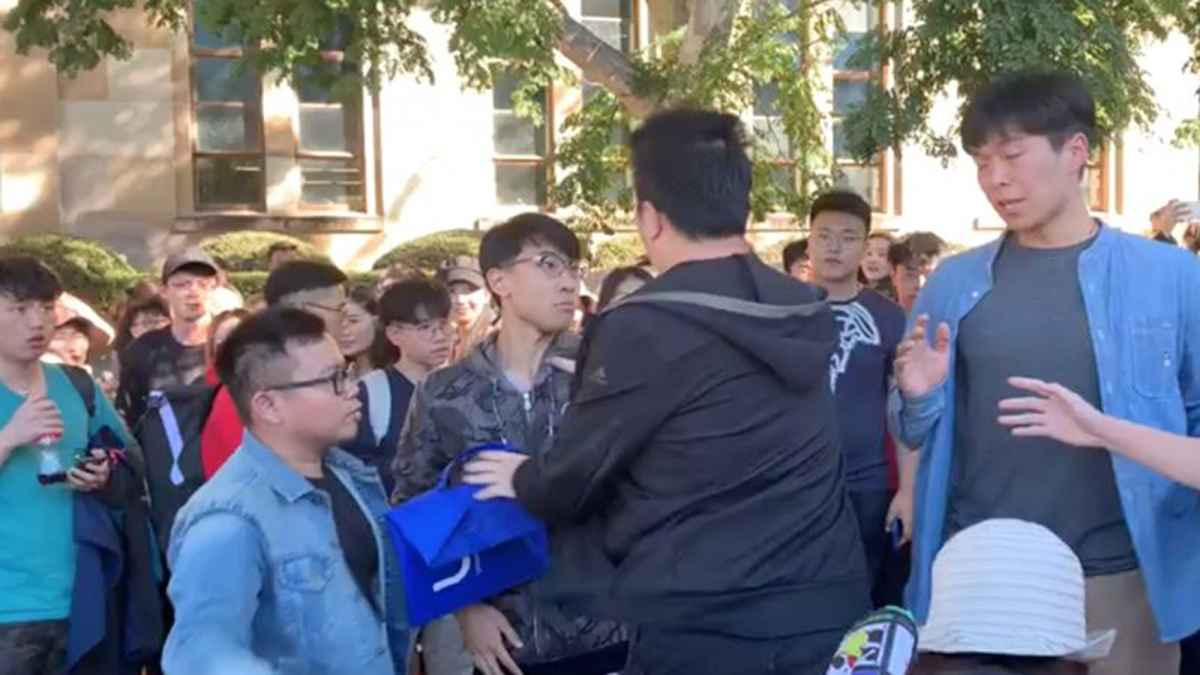As Clive Hamilton argues in his book Silent Invasion, Australian institutions at all levels have been shockingly blind to the creeping threat of communist China. Successive governments, business, academia, even local councils, have been too dazzled by the lure of “Belt and Road Initiative” money to stop and give even the most basic thought to the national security implications of Beijing’s aggressive expansionism.
The Federal government, at least, has begun to take notice, after the perplexing knuckleheaded decision to sell the Port of Darwin to a Chinese company and the exposure of Labor’s ties especially to Chinese agents of influence. Perhaps at least some of the academics who’ve gleefully taken Beijing’s money might pay attention, too.
The Morrison government is rushing to tighten national security rules governing university research collaboration with foreign countries.
Education Minister Dan Tehan will brief university vice-chancellors on the plan for stricter guidelines in Brisbane tonight after it was quickly pulled together following a meeting between university representatives and government officials, including some from security agencies, last Thursday.
Mr Tehan said yesterday that last week’s discussions had been “very productive”.
Australia’s universities have become dangerously addicted to Chinese money, whether it be the lucrative foreign student market or the Beijing-controlled “Confucius Institutes”. The same academics who shrieked and fainted at the very thought of a Centre for Western Civilisation have happily trousered Beijing’s money and influence. This despite abundant evidence that Beijing’s security agents were shadowing and menacing Chinese-national students on Australian campuses, and meddling in course content.
Perhaps what is at last focussing academics’ attention are such recent developments as the violent clashes on Australian campuses over Hong Kong, and Beijing’s security agencies demanding the passports of Australian academics as a condition of continuing research co-operation. It’s all a bit different when it’s their necks under the boot.
“As I have said previously, the government and the sector are taking this issue very seriously,” Mr Tehan said.
“I will have more to say on this after I have met with vice-chancellors on Monday. I thank everyone from the higher-education sector who has worked constructively on this matter.”
One of the more egregiously bone-headed moves by universities has been to flirt with allowing Chinese telco Huawei to build IT infrastructure on campuses. Not only has Huawei been banned by most of the “Five Eyes” states (even Ardern’s government seems to have recognised the risk), but a well-documented cyber-war has seen Chinese agents stealing sensitive national security information, willy-nilly.
The new guidelines are also expected to cover cyber security in universities, with non-secure IT systems regarded as a key weakness that potentially allows foreign access to data with national security or defence applications.
The new guidelines are not expected to specifically name China, although Chinese PhD students and researchers who work on research projects with military or security uses are the main reason behind the tighter rules.
Higher-education sources argue that, while the sector will accept the tighter rules, it is unclear why universities are being singled out with a specific set of national security guidelines.
theaustralian.com.au/higher-education/tehan-to-tighten-guidelines-on-foreign-research-collaborations
Perhaps because they’re the most hopelessly naive of Beijing’s useful idiots?

